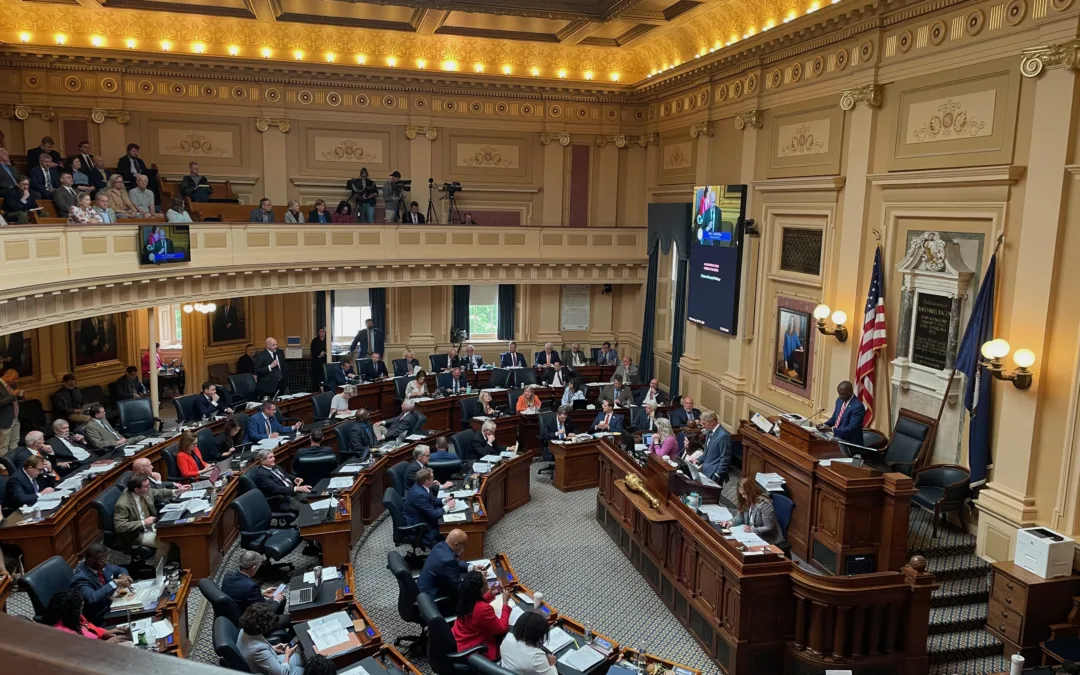The Supreme Court delivered two consequential decisions on Thursday morning, rejecting a challenge to partisan gerrymandering and ruling that a citizenship question cannot be added to the 2020 census.
The court’s first ruling was a huge blow to voting rights advocates, as the conservative-led court ruled that partisan gerrymandering challenges to electoral maps are political questions that cannot be reviewed in federal court.
In a 5-4 decision, Chief Justice John Roberts wrote that “partisan gerrymandering claims present political questions beyond the reach of the federal courts.”
He also said federal judges “have no license to reallocate political power between the two major political parties, with no plausible grant of authority in the Constitution, and no legal standards to limit and direct their decisions.”
The decision effectively slams the door shut on federal court challenges to extreme gerrymandering, such as the ones challenging Republican gerrymanders Wisconsin, Ohio and Michigan.
The court was considering a Republican-drawn map in North Carolina and a Democratic gerrymander in Maryland. The North Carolina map gave the GOP a 10-3 advantage in congressional districts, while the Maryland gerrymander gave Democrats a 7-1 edge.
The court’s decision means both maps stand. More concerning to voting rights advocates is what the ruling could mean for the future.
These advocates fear that the decision could blow open the door for more extreme gerrymandering across the country, further polarizing the country and allowing elected officials to choose their constituents, rather than the other way around.
Some were also quick to point out that the decision could now allow lawmakers to more easily get away with drawing racially gerrymandered maps, like the one Virginia Republicans drew in 2011.
Roberts was joined in the majority by the court’s four other conservative justices, Clarence Thomas, Samuel Alito, Neil Gorsuch and Brett Kavanaugh.
Justice Elena Kagan dissented, writing that for the first time ever, the Supreme Court “refuses to remedy a constitutional violation because it thinks the task beyond judicial capabilities.”
Kagan said the gerrymanders “violated the constitutional rights of many hundreds of thousands of American citizens,” and that “these gerrymanders enabled politicians to entrench themselves in office as against voters’ preferences.”
Kagan also pointed out the dysfunction and polarization caused by the gerrymanders and the long-term dangers they pose.
The issue of gerrymandering will now be left to the states, and voting rights advocates are now likely to push harder for states to form nonpartisan, independent redistricting commissions and take redistricting out of the hands of politicians.
The decision is also likely to highlight the importance of state legislature elections in 2019 and 2020, which will determine which party controls the redistricting process in most states when new maps are drawn in 2021.
Those maps will also be affected by the Court’s second landmark decision on Thursday, as the justices put on hold the Trump administration’s plan to include a question about citizenship on the 2020 Census.
The Court declared that the administration had provided a “contrived” reason for wanting the information and said the Commerce Department must provide a stronger and more clear explanation.
Chief Justice Roberts wrote the opinion, which said that agencies must offer “genuine justifications for important decisions, reasons that can be scrutinized by courts and the interested public.”
The Census takes place every ten years, and helps determine the size of each state’s congressional delegation, the number of electoral college votes each state gets, and how the federal government allocates hundreds of billions of dollars.
Opponents of the citizenship question said it would result in under counting more than 8 million people who would refrain from answering that there was a non citizen in their household for fear of reprisal by the Trump administration.
Civil rights and immigration rights advocates viewed the question as a nakedly partisan attempt to entrench power among white Republicans, arguing that an under count would have mostly affected states and urban areas with large Hispanic and immigrant populations who tend to vote for Democrats.
Roberts said that a district judge made the correct decision by sending the issue back to the Commerce Department for a better explanation.
While the decision temporarily prevents the Trump administration from adding the citizenship question to the Census, Roberts left the door open for the administration to provide a stronger rationale for including the question.
It’s unclear whether there will be time for the Court to hear the case again and issue another ruling before the deadline to print Census forms, but considering the deadline itself has ranged from June to October, it’s plausible that the case could make its way back to the Court this fall.
For now though, opponents of the citizenship question are reacting with cautious optimism.
President Trump, meanwhile, reacted with anger and threatened to delay the Census, even though such an act would be unconstitutional.
Roberts was joined in the majority by the court’s four liberals, while Thomas, Gorsuch, Kavanaugh and Alito dissented.
Photo © Geoff Livingston
Politics

Youngkin, Democrats to start over on budget talks
The Republican governor stood with Democratic leaders in the General Assembly on Wednesday in a bid to ease tensions over their budget debate....

VIDEO: Domestic abuse victims speak out against the gun law bills Gov. Glenn Youngkin vetoed
Senate Bill 47 and House Bill 46 aim to close the loophole that allows offenders to transfer their firearms to someone else instead of relinquishing...
Local News

Virginia verses: Celebrating 5 poetic icons for National Poetry Month
There’s no shortage of great writers when it comes to our commonwealth. From the haunting verses of Edgar Allan Poe, who found solace in Richmond's...

Join the fun: Recapping Family Literacy Night’s storybook adventures
When’s the last time you read a book aloud with a loved one? If it’s difficult to answer that question, then maybe it’s time to dust off that TBR...




